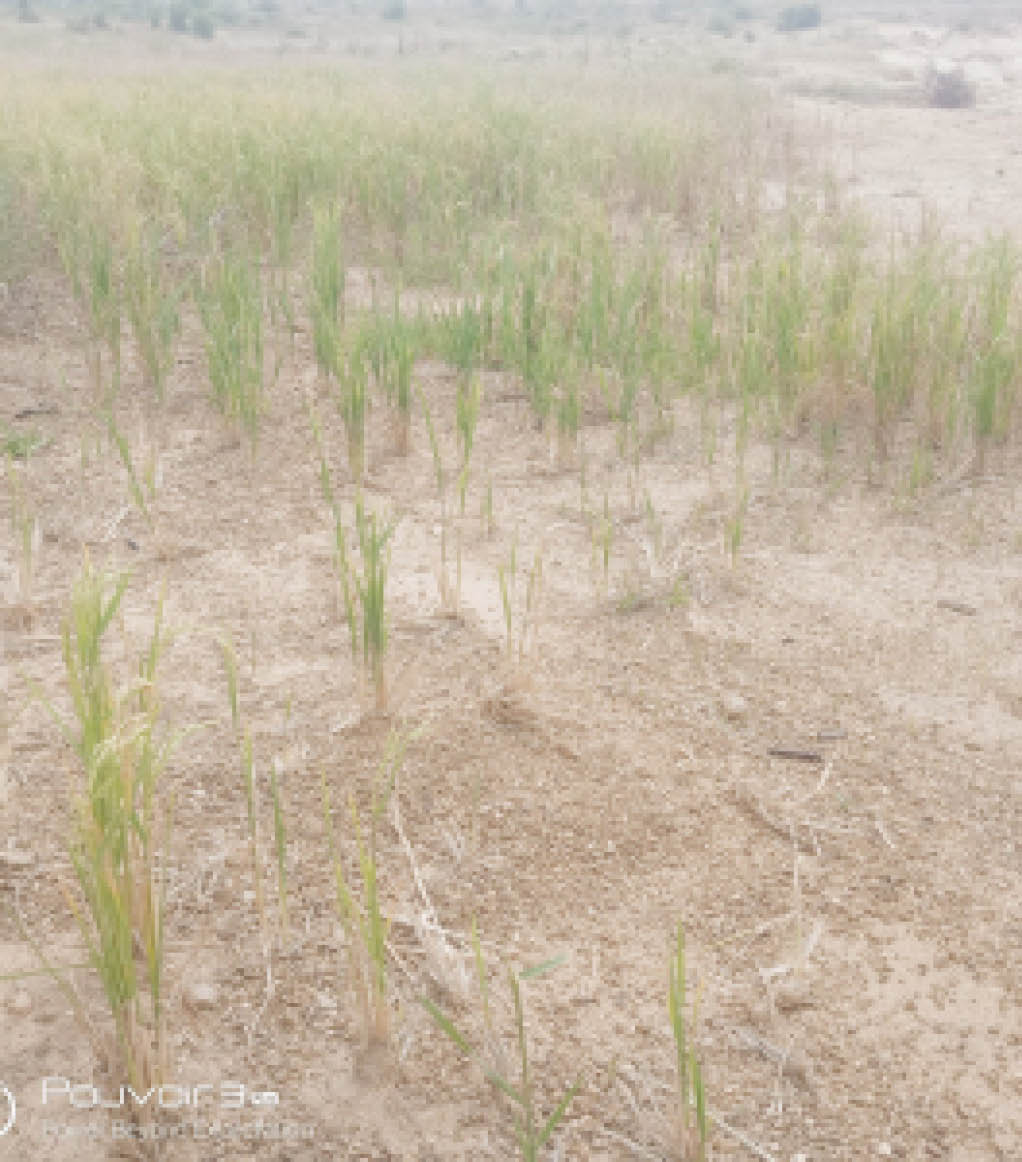Apart from flood incidents that have continued to pose a challenge to food production due to the destruction of thousands of hectares of farmlands across the country, pest attack has also caused serious setback to rice production in this year’s farming season in Kano State.
The state is among the major rice-producing states in northern Nigeria. According to the International Institute of Tropical Agriculture (IITA), rice is the fourth most important cereal crop grown by farmers in the state after sorghum, millet and maize.
Prices of grains, legumes continue to soar
Nestlé partners Africa Food Prize on food security, climate change
At the Kano River Project part (Kura, Garun Malam and Bunkure) on one hand, there were few rice farms affected by the flood, according to Garba Yusuf Maitama Kura, one of the farmers in the area.
But Kura said stem borers and rice blasts were the major causes of low rice yield in the area this year, adding, “Rice farms in our area were attacked by stem borers, which cause whitehead. Borer cuts off the growing part of the plants from the base, feeds inside the stem and causes the plant to die.”
Rice farming experts believe that borers damage the base of the panicle and thereby prevent it from emerging, or if already emerged, the grain would be unfilled and white. They added that stem borers were generally considered to be the most damaging pest.
Kura lamented that although both chemical and cultural controls were applied in the farms, rice yield was greatly affected because most farmers could only realise the borers’ attack when the plants had started approaching the harvesting period.
“In every three rice farmers, at least two are complaining of the low yield this year. In one of my farms, I harvested 24 bags of rice last year although there was a shortage of rainfall, but I could only harvest 14 and a half bags this year on the same farm,” he said.
Kura thanked Allah for what they were able to harvest, as according to him, farmers in some other parts of the country could not even see the farmlands, let alone harvesting rice.
Our correspondent observed that in the last three weeks, a bag of paddy rice was selling at N18,000, but now, it has started becoming scarce at markets and the price jerking up to N22,000 per bag.
On the other hand, Sulaiman Salisu Ahmed, a rice farmer in Rurum, Rano Local Government Area, said flood and water overflow from Tiga Dam had washed away many farms in the area.
“One of our farms where we used to harvest at least 70 bags of rice was flooded and we could not harvest anything. Apart from rice, onions, pepper and soybeans farms were also affected by the flood. Now that the water has started moving back, we are planting potatoes in the flooded farms, with a view of getting something to cushion the effect of the loss we have incurred,” Ahmed said.
He said although government officials had collected the names of the affected farmers in the area and their contact details, they had neither received anything nor contacted by the authorities.
Dr Habibu Dahiru, another rice farmer, said people answered the federal government’s call of going back to the farm to feed themselves and had done their best towards achieving the objectives. Dahiru has two rice farms – one in GidanKwari, Bunkure Local Government Area and the other in Taraba State.
“The Kano farm is not big, it is just two hectares, but the one in Taraba is large. I planted six bags of rice on the farm but water destroyed everything in the two farms. The Taraba flood is the worst; one has to get a native to indicate demarcations between one farm and another.
“Flood can be considered as a natural disaster, but some communities believe that there was negligence from the side of the government for allowing water from dams to further aggravate the situation,” he said.
He also reminded the government that farmers were in a difficult situation that requires urgent attention to mitigate the effect of the disaster and take appropriate steps to prevent future occurrences of the dams overflowing and breaking.
The Director of Extension Services, Kano State Agricultural and Rural Development Authority (KNARDA), Gambo Isah Garko, said the estimated area flooded by water in Kano this year was 40,209 hectares of land.
He said the challenge faced by rice farmers could be described as low production because wherever flood occurred, it washed down everything, and in some other areas, there were rice blast and rust.
Garko said there was an increase of rice farms and farmers in the state this year, but and regrettably, floods set in and destroyed everything. He added that his agency had an estimate of areas affected but that of pests, blast and other rice diseases was not ready.
He outlined many towns and villages in Bunkure, Wudil, Sumaila, Takai, Gezawa, Danbatta, Tofa and Karaye local government areas where rice farmers were affected by floods.
The director also said the state government had directed the KNARDA to provide an estimate of the damage incurred during the disaster and suggest intervention, with a view to assisting the farmers and mitigate the low rice production to prevent food crisis in the state.
“We submitted the estimate to the government and suggested that it ensures dry season rice production is given special attention. And we are going to motivate the affected farmers to plant a special variety of beans in their farms any moment from now once the floodwater starts dipping. Even the remaining moisture in the farms can sustain the beans to its harvesting period.
“The farmers should also stop planting rice on river banks or only do that during the dry season. There is also the need to de-silt and strengthen embankments of dams and rivers in the state. We have written and sent to the federal government,” he said.

 Join Daily Trust WhatsApp Community For Quick Access To News and Happenings Around You.
Join Daily Trust WhatsApp Community For Quick Access To News and Happenings Around You.


